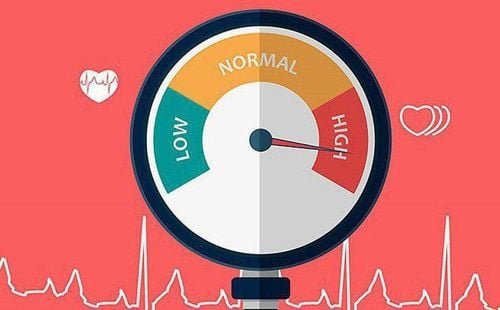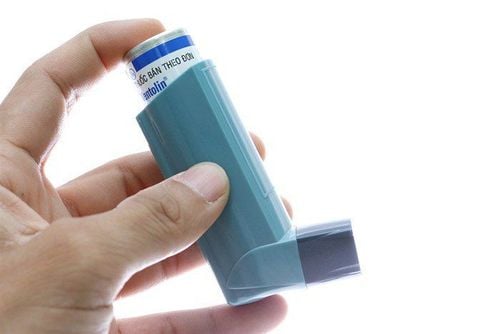Holding breath is a intentional temporary state like when you’re diving, inhaling smoke, passing through a hazardous gas area... Healthy people can hold their breath for 3 to 5 minutes. However, this duration can increase with regular practice, such as divers or professional athletes.
1. How long can a person hold breath?
Holding breath is a intentional temporary state like when you’re diving, inhaling smoke, passing through a hazardous gas area... Healthy people can hold their breath for 3 to 5 minutes.
However, it might increase in some certain cases such as:
- Some individuals who practice frequently may have the ability to use oxygen more effectively, their brains can stand the lack of oxygen longer than usual.
- Divers and professional athletes who practice regularly can hold their breath longer than usual.
The world record about holding breath underwater belongs to Mr. Stig Severinsen (Swedish), he can hold his breath for 22 minutes.
2. What happens when you hold your breath?
Holding your breath for a period of time is also called voluntary apnoea, which is an extreme challenge. Professional divers always practice and also take a deep breath before diving. By holding their breath, the divers can expel carbon dioxide out of their bodies when stay underwater.
Almost all healthy adults easily hold their breath for one to two minutes. However, you should avoid doing it because that might cause some dangerous situations, like:
- Lower your oxygen level
When you stop breathing, there is no oxygen go in your body, which makes your blood oxygen saturation decrease. This implies that your brain and other organs may not get enough oxygen to function properly.
When your brain do not get enough oxygen, the initial symptoms are confusion, poor decision-making and loss of coordination.
- Increase carbon dioxide level
When you hold your breath, the oxygen level begins to decrease and the carbon dioxide level increases. Your body releases carbon dioxide when you expire, therefore when you hold your breath, the carbon dioxide is going to agglomerate and lead to the feeling of exhaling and breathing in more air.
However, this is not only happen when you stop breathing underwater. A research was published in the European Journal of Applied Physiology points out that the carbon dioxide level also increases when the divers intentionally hold their breath or do exercise before diving. Which is a risk of unconsciousness.

- The risk of brain-damaged
A research shows that when divers hold breath in a long time, he will have a higher S100B level in blood than normal people.
Protein S100B is a sign that reflects brain-damaging. But it’s just temporary and it will be back to normal once they breathe.
The research indicates holding breath for a long period of time might affect the central nervous system and cause a sequelae.
- Loss of coordination
Studies also reveal that divers have higher lactate blood level when holding breath. Lactic acid will agglomerate in muscle after prolonged retention of the breath or exercise with high-intensity and might lead to cramps, pain and incoordination. The increase of lactic acid in blood means your muscle does not have enough oxygen.
- Increased blood sugar
A prolonged retention of breath may raise your blood sugar level. The researchers found out the increase in blood sugar level when divers hold their breath.
They haven’t discovered the cause of their elevated blood sugar level while lacking of oxygen. However, there is a theory that your body is unable to secrete insulin at that time.
- Lower your heart rate
When your body sorts of oxygen, the heart can bump oxygenated blood out to the body. The reseach show that holding your breath for approximately 30 seconds may lead to decrease the heart rate and cardiac output.
- High blood pressure
When you holding your breath, your heat rate drops so the body adjusts by raising your blood pressure to maintain the blood circulation. Which the vessels are contracted to make. The increase of blood pressure starts after holding breath for 3 minutes, once your oxygen level in your blood starts to decrease.

- Loss of consciousness
The most dangerous risk of holding your breath underwater is losing consciousness. Professionals said that when children hold breath underwater, their intrathoraic pressure may cause the distraction of vessels and finally affect the blood flow return to the right of the heart.
When it occurred, the heart can’t work properly and consciousness happened. And when adults hold their breath in a long time underwater, they might be conscious, too.
In conclusion, healthy people can hold their breath for 3 to 5 minutes. This duration can increase with regular practice, such as divers or professional athletes. Holding your breath may lead to increased blood pressure, brain damage or even loss of consciousness. Therefore, if you’re not a diver or a professional athletes, you shouldn’t hold your breath.
To arrange an appointment, please call HOTLINE or make your reservation directly HERE. You may also download the MyVinmec app to schedule appointments faster and manage your reservations more conveniently.













